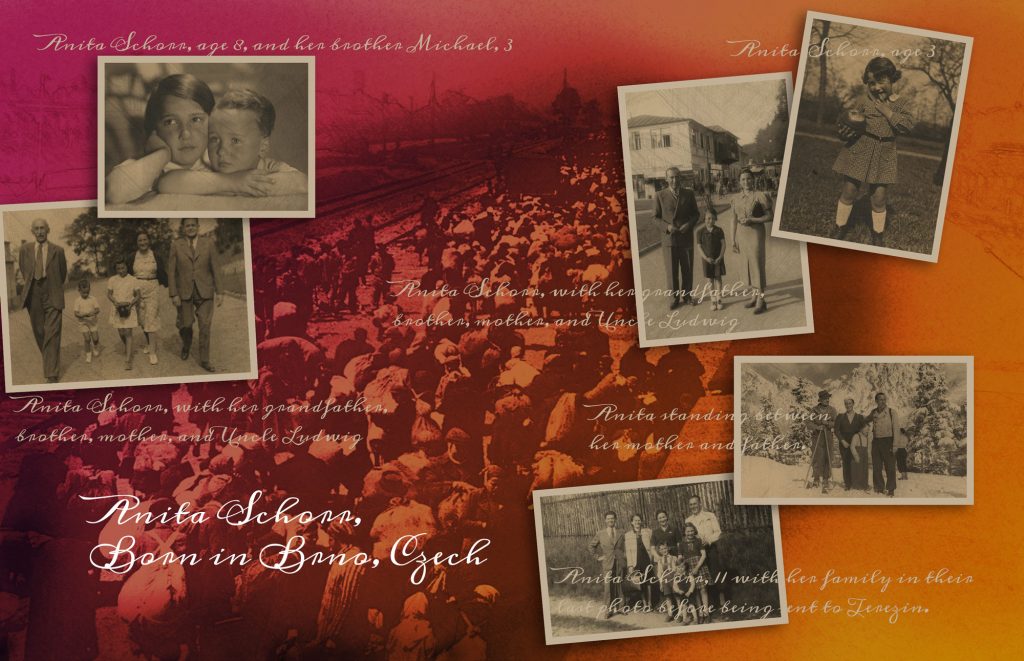
Having dealt with memories of historical violence for the past fifteen years in my academic work as a literary scholar, the question of historical comparison is very familiar to me. In the past decade the field of cultural memory studies has been dominated by Michel Rothberg’s (2009) idea of the multidirectionality of memory and his suggestion that in order to be articulated publicly, memories of violence need the support of other widely recognized memories. In the collage of stories of family separation we see how Anita Schorr, in order to make people understand the new discrimination policies implemented against Jews right after the Nazis invaded her native town of Brno in Czeckoslovakia in 1939, draws a parallel with US history and refers to similar practices of marginalization and injustice against African Americans. These kinds of comparison happen every day in our globalized memory culture and are productive if they manage to retain the particularity of compared experiences and aim at solidarity rather than competition between different memories.
But the nagging question that has accompanied academic work on cultural memories of violence, apart from the historical knowledge it produces and helps to keep alive, is its relevance for our contemporary world, its ability to contribute to change. As much as the collage of Holocaust testimonies makes us painfully aware of the traces that genocide and war have left on the very fabric of individual lives, the more helpless we feel in the face of the repetition of similar individual experiences of family separation brought about by the policies of our own countries – be it at the Mexican-US border or on the shores of the Mediterranean in Europe. Why cannot we avoid repeating the past even if we are committed to remembering it?
In her proposal for a global ethics of co-habitation, Judith Butler (2012) has argued for the need to extend thinking on human rights to basic bodily needs such as food and shelter and protection against injury. If in the past these needs were relegated to the private sphere, Butler stresses the importance of political, economic, and social infrastructures that not only sustain corporeal persistence by protecting against hunger, injury and destruction but also let people live and thrive. Is the inviolability of family ties a basic human need in the latter sense? Perhaps not, if people are willing to risk them not only in the refugee situation but also in the search for a better economic life. But if I think of my Lebanese friend, who has chosen a quiet life for his children in my native Estonia away from the constant turbulence of his home country, if I think of his now decade-long, silent longing for his extended family in Lebanon that even our digitalized world is not able to expiate; if I think about my husband’s so-called ‘quota refugee’ friend from another war-torn country in the Middle East, who does low-paid work at the my local laundry and daily receives news about the latest blow that war has dealt to one of his family members back home… If I think about these people here among us, then family ties are a basic human need and the Holocaust stories of family separation remind us of that universal within the particular.
Eneken Laanes is Associate Professor of Comparative Literature at Tallinn University, Estonia and Leader of the European Research Council Project Translating Memories: The Eastern European Past in the Global Arena. She has published on transnational memory of Soviet repressions and on historical comparisons in literature, film and art. She is also a cultural critic and has edited a volume of letters from the Gulag by Estonian writer Raimond Kaugver (2020).
Image created by artist Kenan Aktulun; the images come from each of the families. Images courtesy of the Schorr family (Fortunoff Video Archive).
This contribution is part of the larger forum engaging artists and authors, from very different places and writing in very different genres, in a conversation on “the uses and disadvantages of historical comparisons for life.” The idea initially arose in response to the American presidential administration’s family separation policy on the southern border. A short documentary film, The Last Time I Saw Them serves as a point of departure. The intention is to provoke a discussion that could be an Aufhebung of the ‘is Trumpism fascism?’” debate: what can and what can we not understand by thinking in comparisons with the past?
Read Marci Shore’s introduction to the project here. Find the Table of Contents listing all contributions here.
The project is a collaboration between the Fortunoff Video Archive for Holocaust Testimonies at Yale University, the Democracy Seminar, and the Transregional Center for Democratic Studies (TCDS) at the New School for Social Research.

The Universal within the Particular